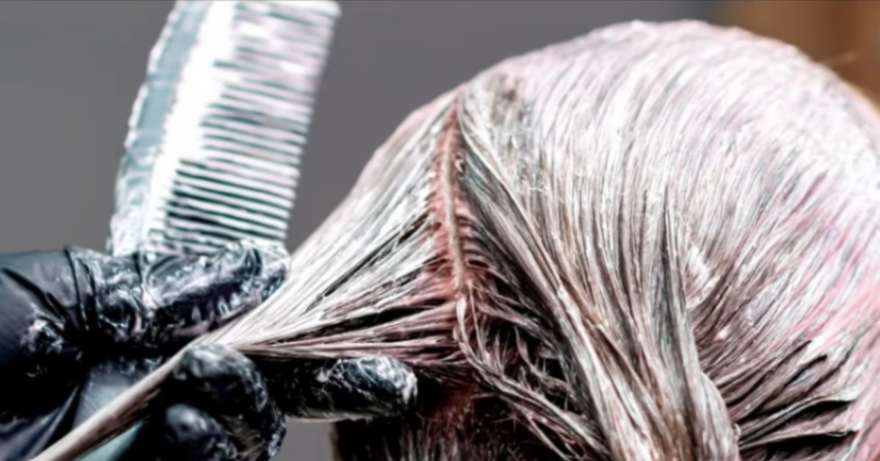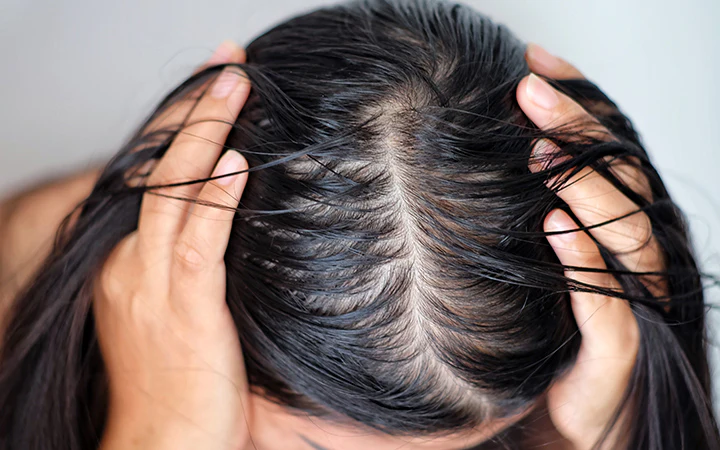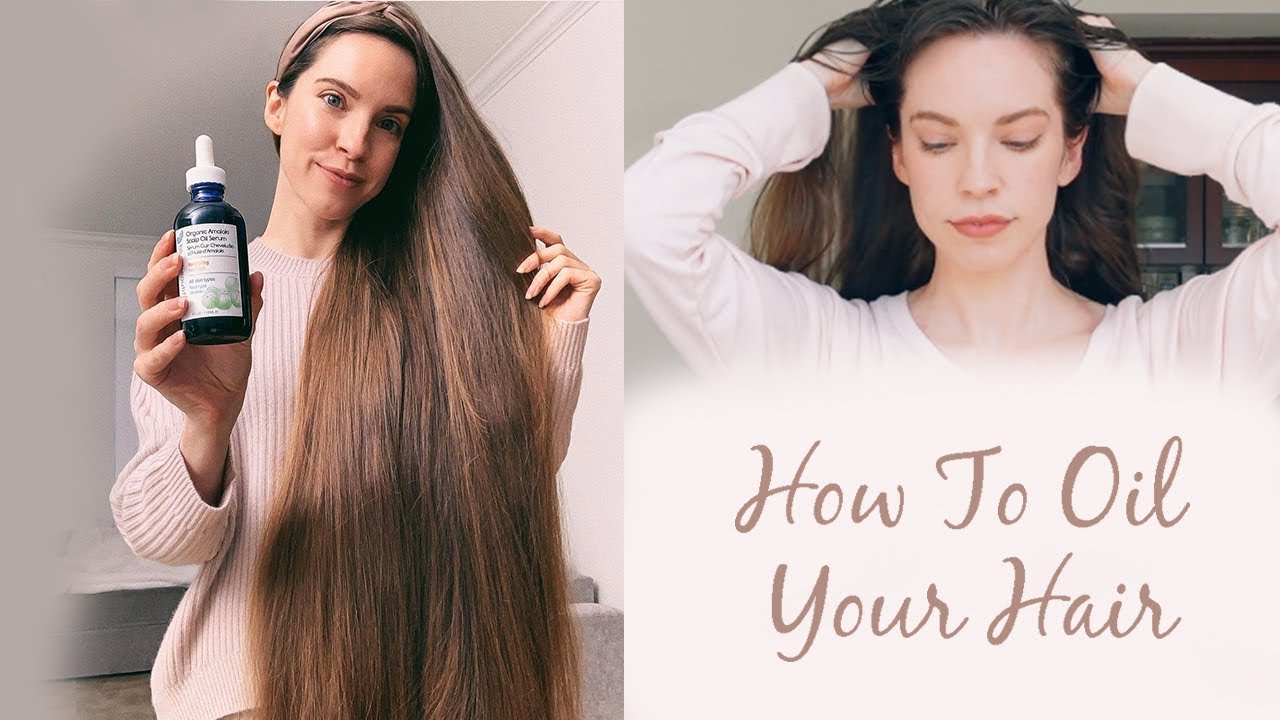Should I color my hair? It’s a question many of us ask when considering a change in style, covering up grays, or expressing ourselves through a bold new look. While coloring your hair can be tempting, it’s important to weigh the potential risks before reaching for that bottle of dye. Many people don’t realize the long-term impact hair dye can have on their natural hair and overall health. In this article, we’ll explore some compelling reasons to rethink your next salon appointment and offer pro tips for keeping your hair healthy and beautiful naturally.
The Hidden Costs of Coloring Your Hair
No1: Chemical Damage to Your Hair Structure
When you dye your hair, especially with permanent color, you expose it to chemicals that can cause significant damage. The two primary chemicals used in most hair dyes are peroxide and ammonia, both of which are harsh on the hair.
- Ammonia is used to lift the hair cuticle, allowing the dye to penetrate deeper into the hair shaft. However, this process disrupts the cuticle’s protective role, leaving your hair vulnerable to damage.
- Peroxide is used to break down the natural color of your hair so that the new dye can take hold. Unfortunately, peroxide strips your hair of moisture, leaving it dry, straw-like, and prone to breakage.
Over time, these processes can weaken the hair shaft, making it brittle and susceptible to split ends. The more frequently you color your hair, the more you compromise its strength and overall health.
Pro Tip: If you choose to color your hair, opt for semi-permanent dyes or low-ammonia formulas, which are less damaging. However, these alternatives often don’t last as long and may require frequent touch-ups.
No 2:Dryness and Brittleness from Hair Dye
One of the most common side effects of regular hair coloring is dryness. The chemicals used in hair dye remove the natural oils that keep your hair hydrated. If you’ve ever noticed that your colored hair feels rougher or looks frizzier, this is likely due to moisture loss caused by dyeing.
In addition to dryness, dyed hair is more prone to breakage. If you don’t follow a strict conditioning routine after coloring, your hair may become brittle and break off, leading to thinning over time.
Pro Tip: Use a deep-conditioning treatment or hair mask weekly to restore moisture to your hair. Incorporating leave-in conditioners and natural oils, such as argan or coconut oil, into your routine can also help reduce breakage.
No 3: Increased Maintenance and Frequent Salon Visits
Colored hair requires a higher level of care than untreated hair. You will need to touch up your roots regularly, especially if you’ve chosen a color that differs significantly from your natural shade. Each touch-up exposes your hair to more chemicals, further weakening its structure over time.
Additionally, certain colors like reds, blues, or pastel shades fade quickly, forcing you to re-dye more often. Even if you choose a color close to your natural hue, permanent dyes can require more frequent trips to the salon for maintenance than if you were to leave your hair untouched.
Pro Tip: If you want to experiment with color without the high maintenance, consider temporary or semi-permanent dyes. These fade more quickly but cause less damage since they don’t open up the hair shaft.
No 4:Potential Health Risks from Hair Dye Ingredients
Beyond damaging hair, coloring products can also have adverse effects on health. Hair dyes contain a range of synthetic chemicals, including ammonia and peroxide, but also some more concerning ingredients like coal tar derivatives found in darker dyes. These chemicals have been linked to a higher risk of certain cancers, such as bladder cancer.
While research hasn’t definitively proven a causal link between hair dye use and cancer, some studies have shown a slight increase in cancer rates, particularly in individuals who use dark, permanent dyes regularly.
Pro Tip: If you are concerned about the chemicals in hair dye, opt for natural and organic alternatives, or at the very least, minimize how often you color your hair. Always consult with your stylist to choose a safer, less harmful option.
The Benefits of Embracing Your Natural Hair Color
Choosing to embrace your natural hair color offers numerous benefits that go beyond just avoiding the damaging effects of hair dye. Here are a few reasons why letting your natural hue shine can be a great choice:
Healthier, Stronger Hair
By not subjecting your hair to the harsh chemicals found in dyes, you are allowing it to retain its natural strength and elasticity. Natural hair is typically more resilient, meaning fewer split ends, less breakage, and a fuller, more voluminous appearance.
Lower Maintenance and Reduced Costs
Maintaining your natural hair color is far less time-consuming and costly than the upkeep required for colored hair. No more frequent trips to the salon, expensive touch-up products, or worries about root growth showing. You’ll save both time and money by opting out of the coloring cycle.
Confidence and Authenticity
There is something incredibly empowering about embracing your natural hair color. Society often pressures us to alter our appearance to fit certain beauty standards, but rejecting that pressure and confidently wearing your natural color is a bold statement of self-acceptance. You can express your personality and individuality in other ways—through your hairstyle, texture, or accessories—without relying on dye.
Pro Tips for Healthy, Natural Hair Care
Even without the use of hair dye, maintaining healthy, natural hair requires some attention. Here are a few expert tips to keep your natural hair looking its best:
- Avoid Heat Styling: Heat from blow dryers, straighteners, or curling irons can cause significant damage over time, leading to dry, brittle hair. Try to air dry your hair or use heat styling tools on the lowest setting.
- Choose the Right Products: Opt for sulfate-free shampoos and conditioners that are gentler on your hair. Sulfates can strip your hair of its natural oils, leading to dryness.
- Regular Trims: Keep your hair healthy by getting regular trims, even if you’re growing it out. Trimming off split ends will prevent further damage and promote overall hair health.
- Stay Hydrated and Eat Well: Your hair health is also influenced by your diet and hydration. Drinking plenty of water and eating nutrient-rich foods like leafy greens, nuts, and fish can promote healthy hair growth.
Final Thoughts
While coloring your hair might seem like a simple way to switch up your look, the potential risks to both your hair’s health and your overall well-being are worth considering. From chemical damage to increased maintenance and possible health concerns, dyeing your hair has more drawbacks than many people realize. Instead of following trends, embracing your natural hair color can lead to healthier, stronger, and more beautiful hair over time.
If you still feel the urge to experiment with color, consider semi-permanent or natural alternatives that are gentler on your hair. Either way, prioritizing the health of your hair will help you feel confident, beautiful, and authentically you.
By shifting the focus from artificial beauty to natural self-care, you’ll not only save your hair from damage but also embrace a new sense of empowerment and authenticity.



